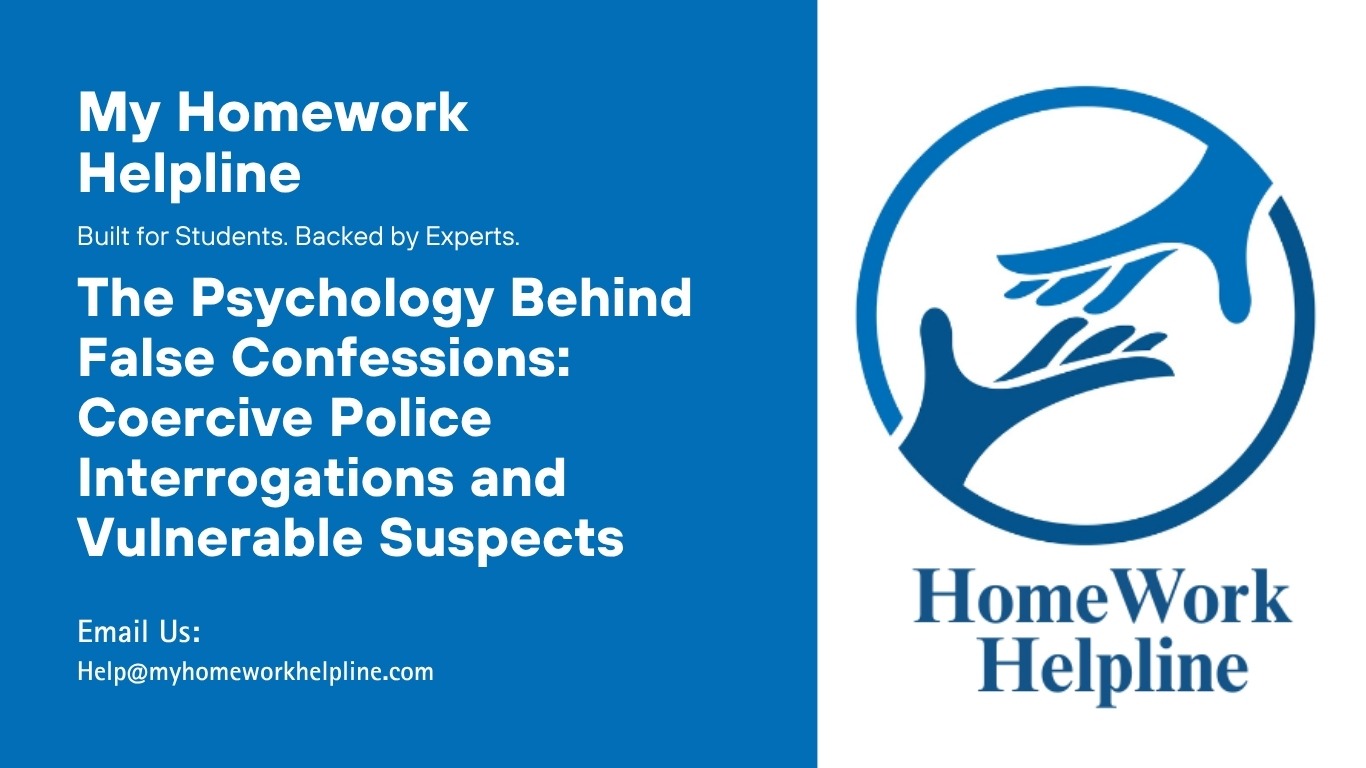How Police Interrogation Tactics Lead to False Confessions: Cleary’s Perspective and the Case of Michael Crow
Cleary (2017) discusses the psychological dynamics of police interrogations, emphasizing how certain techniques can lead to false confessions. The main point is that intense and manipulative interrogation methods can pressure innocent individuals into confessing to crimes they did not commit. Cleary highlights that tactics such as intimidation, deception, and prolonged questioning can significantly impair a person’s judgment, leading them to falsely admit guilt as a means of escaping the stressful situation.To explain this to my grandparents: Imagine you’re being questioned for hours by someone who keeps asking the same tough questions and doesn’t let you take a break. This person might lie to you, saying they have evidence you did something wrong, even if you didn’t. Over time, you might start to feel so stressed and hopeless that you think admitting to something you didn’t do is the only way to make it stop. That’s what Cleary is saying happens in some police interrogations – people end up confessing to crimes they didn’t commit because they’re overwhelmed and scared.
Need academic support with your police interrogation and false confession essay or criminal justice paper? Get expert help now from our experienced team.
The case of Michael Crow is a notable example of Cleary’s main point in action. Michael Crow was a 14-year-old boy who was interrogated by police for hours without a lawyer or his parents present. The police used high-pressure tactics, including lying to him about evidence they supposedly had and suggesting that he had multiple personalities. Michael, overwhelmed and scared, eventually confessed to the murder of his sister, even though he was innocent (Grisso & Steinberg, 2018). In this case, the intense psychological pressure and manipulative interrogation techniques led to a false confession, perfectly illustrating Cleary’s argument. Michael’s vulnerable state as a young teenager made him particularly susceptible to the coercive tactics used by the police. This case demonstrates the dangerous consequences of aggressive interrogation practices and underscores the importance of safeguarding the rights of individuals during police questioning.
References
Cleary, H. M. D. (2017). Police interrogation of juveniles: Toward improving the voluntariness and reliability of youth confessions. Current Problems in Pediatric and Adolescent Health Care, 47(2), 45-61. https://doi.org/10.1016/j.cppeds.2016.12.009
Grisso, T., & Steinberg, L. (2018). The influence of developmental factors on the interrogation of juveniles. Law and Human Behavior, 42(3), 275-289. https://doi.org/10.1037/lhb0000291

